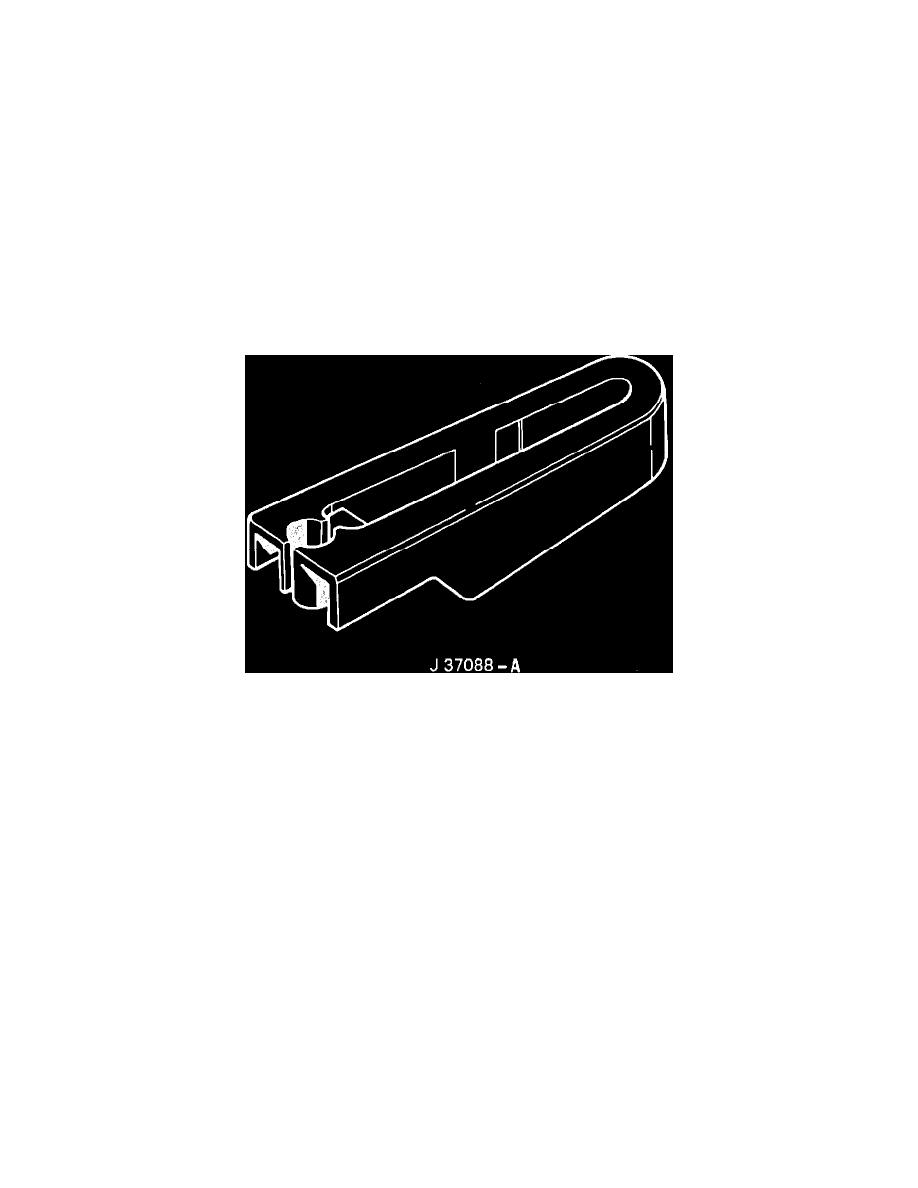Corsica L4-134 2.2L (1991)

Nylon fuel lines are designed to perform the same function as the steel or rubber fuel lines they are replacing. The use of nylon fuel lines eliminates the
'knocking' noise that sometimes accompanied engine warm-up when metal lines were used. Nylon lines are made to withstand maximum fuel line
pressure, exposure to fuel additives, and changes in weather. There are two sizes used: 3/8" ID for the fuel feed and 5/16" ID for the fuel return. The fuel
feed and return lines are assembled and serviced as an assembly. Quick connect type fittings are used at the ends of the fuel feed/return lines and at the
in-line fuel filter.
Lines are soft and flexible prior to installation in a vehicle. When filled with gasoline for 72 hours, the lines will harden. Nylon fuel lines are somewhat
flexible and can be formed around gradual turns under the vehicle. Nylon lines, if forced into sharp bends, will kink and restrict fuel flow. Special care
should be taken when working with nylon fuel lines. Nylon fuel lines cannot be repaired and can only be replaced with the proper part number
replacement.
QUICK CONNECT FITTINGS
Quick connect type fittings provide a simplified means of installing and connecting fuel system components. Two types of quick disconnect fittings are
used at various parts of the fuel system. O-rings, located inside the female socket provide the fuel seal. One type quick disconnect fitting uses hand
releasable locking tabs. The other type of quick disconnect fitting has a locking tab that requires the use of a special tool.
Nylon Fuel Line Tool
FUEL LINE O-RINGS
The fuel line O-rings used are made of Viton. They are brown in color. Viton is less affected than rubber by the additives used in many fuels. Therefore,
rubber should not be used.
